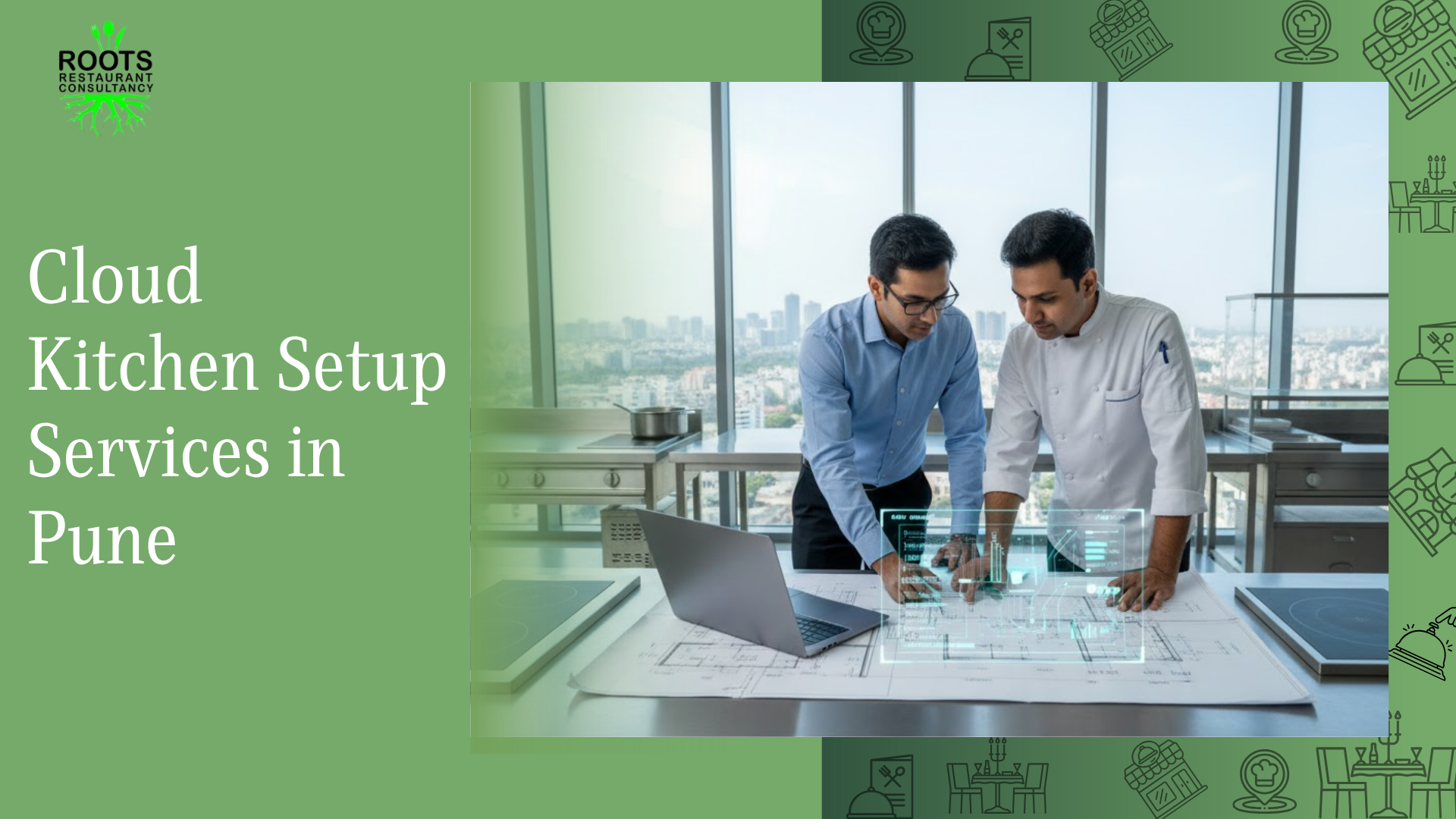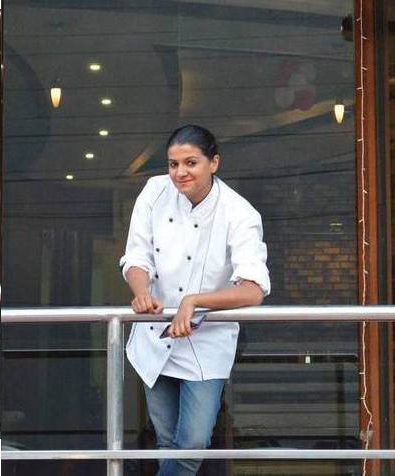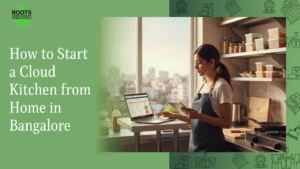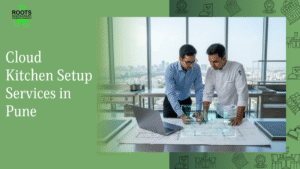The demand for cloud kitchen setup has skyrocketed in Pune as more entrepreneurs shift to delivery-based food models. With a growing population of working professionals, students, and tech employees, Pune has become one of India’s most promising cities for online food delivery.
Unlike traditional restaurants, cloud kitchens save big on rent, staffing, and décor, letting you focus on what matters most — great food and fast delivery. Understanding the right cloud kitchen setup ensures you build a foundation that supports scalability, profitability, and long-term brand growth.
Understanding the Cloud Kitchen Model
Before diving into costs and infrastructure, it’s crucial to understand the cloud kitchen business model.
A cloud kitchen is a commercial space designed exclusively for food preparation and delivery. There’s no dine-in facility; instead, food is ordered online through platforms like Swiggy, Zomato, and Uber Eats, or directly via websites and apps.
With professional cloud kitchen setup services, even small food brands can operate efficiently from compact kitchens, serve multiple virtual brands, and optimize daily production through data insights.
Why Pune Is the Perfect City for a Cloud Kitchen Setup
Pune’s thriving startup ecosystem and young, tech-savvy population make it ideal for new food ventures. The city’s steady growth in delivery orders — especially in areas like Hinjewadi, Kalyani Nagar, and Baner — supports the success of cloud kitchens.
Key factors driving Pune’s cloud kitchen boom:
- Affordable commercial real estate
- Expanding food delivery infrastructure
- Rising demand for quick, hygienic meals
- Supportive local licensing frameworks
- High repeat customer rates
If you’re launching a food startup, investing in a cloud kitchen setup in Pune can be your fastest route to profitability.
Step 1: Defining Your Concept and Cuisine
Every successful kitchen begins with a clear concept. Whether you plan to offer regional dishes, health-based meals, or fusion cuisine, your concept dictates menu design, layout, and branding.
Examples of strong concepts:
- “Healthy lunch bowls for corporate employees”
- “Maharashtrian home-style thalis”
- “Gourmet biryani and tandoor combos”
Professional consultants can help you analyze market trends and consumer preferences before investing.
👉 Check Concept Development Services at Roots Restaurant Consultancy to refine your idea into a profitable food brand.
Step 2: Selecting the Ideal Location for Your Kitchen
Even though there’s no dine-in, location still matters.
Ideal localities for cloud kitchen setup in Pune:
- Wakad
- Kharadi
- Baner
- Hinjewadi
- Viman Nagar
Look for locations that offer:
- High-speed delivery access (within 5-7 km delivery radius)
- Good water and waste management facilities
- Affordable rent between ₹40–₹70 per sq. ft.
Roots Restaurant Consultancy assists in site selection and feasibility analysis, ensuring your investment aligns with delivery logistics and customer density.
Step 3: Kitchen Layout Design and Equipment Planning
A functional kitchen layout is key to efficiency. Professional cloud kitchen setup services focus on maximizing output within limited space.
Essential equipment for your setup:
- Commercial burners and exhaust systems
- Refrigeration and freezer units
- Stainless-steel work tables
- Packaging stations
- Proper storage for dry and wet ingredients
Efficient design minimizes order prep time and ensures smooth workflow.
Roots Restaurant Consultancy offers Kitchen Design & Setup Services to help optimize space, safety, and hygiene standards.
Step 4: Legal Licenses and Registrations
A compliant setup builds trust and protects your business.
Mandatory licenses for cloud kitchen setup in Pune:
- FSSAI License
- Shop & Establishment Act Registration
- GST Registration
- Trade License from PMC/PCMC
- Fire Safety NOC (if required)
Obtaining these can be time-consuming, so hiring consultants who specialize in restaurant licensing streamlines the process. Roots Restaurant Consultancy provides assistance as part of their Operational Diagnostic Services.
Step 5: Menu Development and Costing Strategy
Menu engineering directly affects profitability.
Best practices for a cloud kitchen menu:
- Keep the menu short and specialized.
- Use recyclable or heat-safe packaging.
- Price based on food cost and customer demand.
- Include profitable signature dishes.
Example:
A 12-item menu with 3 categories (Main, Sides, Desserts) simplifies operations and reduces waste.
Get professional help through Menu Development Services to create balanced, profitable menus optimized for delivery.
Step 6: Branding, Packaging, and Photography
A well-executed brand identity differentiates you from hundreds of delivery competitors.
Branding essentials:
- Unique logo and tagline
- Eco-friendly, branded packaging
- High-quality food photography
- QR codes for feedback and loyalty discounts
Strong branding communicates professionalism, improves recall, and boosts customer trust.
Step 7: Technology and Order Management
Using technology tools helps manage orders, track inventory, and analyze performance.
Recommended software tools:
- POS system (Petpooja, Posist)
- Inventory management (GoFrugal, UrbanPiper)
- Accounting software (Zoho Books, QuickBooks)
Integrate your POS with Swiggy and Zomato for automated order processing.
For seamless digital integration, experts offering Revenue Generation Services can help optimize your sales funnel and analytics.
Step 8: Hiring and Training the Right Staff
Even small operations benefit from skilled staff. Hire based on your cuisine and expected order volume.
Typical staffing needs:
- 1–2 chefs or cooks
- 1 kitchen assistant
- 1 packer/helper
- 1 delivery partner or aggregator tie-up
Roots Restaurant Consultancy offers Staff Training & Mentoring to ensure teams follow hygiene and operational SOPs, ensuring consistent customer experience.
Step 9: Marketing and Launch Strategy
Your launch strategy defines your brand’s initial traction. Combine offline branding with online promotions for maximum visibility.
Effective marketing ideas:
- Collaborate with local influencers and food bloggers.
- Offer launch discounts or combo offers.
- Create social media campaigns with appealing visuals.
- Register on Google My Business for location visibility.
- Partner with societies and offices for bulk orders.
Marketing requires consistency and planning. You can access professional assistance through Revenue Growth Services for data-driven strategies that sustain long-term growth.
Step 10: Cost Estimation for Cloud Kitchen Setup in Pune
Here’s a breakdown of approximate expenses for a small 200-sq.-ft. kitchen:
| Expense Type | Estimated Cost (INR) |
|---|---|
| Kitchen Equipment | ₹1,00,000 – ₹1,50,000 |
| Licenses & Registrations | ₹20,000 – ₹30,000 |
| Interior & Layout Setup | ₹40,000 – ₹70,000 |
| Packaging & Branding | ₹25,000 – ₹40,000 |
| Marketing & Promotions | ₹30,000 – ₹60,000 |
| Miscellaneous | ₹20,000 – ₹30,000 |
Total Estimated Setup Cost: ₹2.5 – ₹3.5 Lakhs
With professional help, you can minimize waste, plan accurate costing, and ensure faster ROI.
Step 11: Maintaining Quality and Scaling Up
Sustainability is about maintaining consistent taste, hygiene, and delivery efficiency.
Quality management checklist:
- Regular audits and recipe standardization
- Temperature-controlled storage
- Feedback tracking from delivery apps
- Weekly financial review and menu adjustments
Once stable, expand to multiple brands or cuisines under one kitchen — a proven model for boosting revenue without additional rent.
👉 Learn more through External Leadership & Growth Mentoring to guide your scaling phase.
Benefits of Hiring Professional Cloud Kitchen Setup Consultants
Partnering with experts provides several advantages:
- End-to-end setup — from feasibility to launch
- Vendor and equipment sourcing support
- Compliance and license management
- Menu profitability analysis
- Brand building and digital strategy
- Continuous operational improvement
Roots Restaurant Consultancy, a leading restaurant consultant in India, has helped numerous entrepreneurs launch successful cloud kitchens in Pune and across India, combining culinary insight with operational precision.
FAQs on Cloud Kitchen Setup
Q1. How much space do I need for a cloud kitchen setup?
A 150–250 sq. ft. kitchen is ideal for a small-scale operation in Pune, depending on your menu and expected order volume.
Q2. What is the average investment required to start?
Expect an initial investment of ₹2.5–₹3.5 lakhs, covering kitchen setup, licenses, and initial marketing.
Q3. Can I operate a cloud kitchen from a residential area?
Yes, but it must comply with local municipal and FSSAI guidelines. Consultants can help you assess location feasibility.
Q4. What licenses are mandatory for cloud kitchens in Pune?
You’ll need FSSAI, GST, Trade License, and Shop & Establishment registration.
Q5. How can Roots Restaurant Consultancy help me?
They provide complete cloud kitchen setup services — from design and menu planning to launch strategy and staff training.







